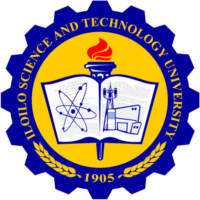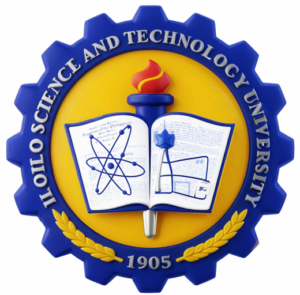Dr. Muyong participates in International Academic Performance Observation Program
 On invitation of the Malaysian Qualification Agency (MQA), Selangor, Malaysia, Dr. Raul F. Muyong, Campus Administrator of SIPC and Trustee, Accrediting Agency of Chartered Colleges and Universities of the Philippines (AACCUP), Inc. participated in the Academic Performance Audit Observation Program at the International Medical University, Selangor, Malaysia on April 12-15, 2010.
On invitation of the Malaysian Qualification Agency (MQA), Selangor, Malaysia, Dr. Raul F. Muyong, Campus Administrator of SIPC and Trustee, Accrediting Agency of Chartered Colleges and Universities of the Philippines (AACCUP), Inc. participated in the Academic Performance Audit Observation Program at the International Medical University, Selangor, Malaysia on April 12-15, 2010.
The Observation Program provided the participants composed of AACCUP Senior Accreditors an opportunity to observe the conduct of institutional audit among Higher Education Institutions in Malaysia by the Malaysian Qualification Agency, Ministry of Higher Education, Malaysia. Lessons learned during the observation visit served as an input to the AACCUP that will be conducting Institutional Accreditation among selected SUC’s in the country starting this year.
The following were the lessons learned by participants during the observation visit:
1. MQA is a government agency under the Ministry of Education. It assesses both public and private higher education providers (HEPs). It accredits programmes and audits institutions.
2. MQA has been accrediting programmes. It has just started institutional audit very recently, and has done it as a project funded by the Ministry. MQA invited eight (8) HEPs, four of which are local research universities, and four are off-shore campuses with foreign (UK, Australia, etc) mother universities that are self-auditing (like IMU).
3. MQA implements Institutional Audit on HEPs thru:
• Thematic audit
• Maintenance of programme accreditation
• Periodic academic performance audit (58 universities)
• Determination of conferment of self-accreditation status
• Maintenance of self-accreditation status
4. For Institutional Audit, a HEP submits a Self Review Portfolio which contains the following:
• Part A – General Information
• Part B – Information of the 9 Areas of Evaluation for Quality Assurance
• Part C – Self-Review Report
5. MQA Institutional Audit is composed of two phases:
• Internal Quality Audit (Self Review)
• The External Audit (Audit Visit)
6. The nine Quality Assurance Areas (Benchmarked & Enhanced Standards) are:
• Vision, Mission, Educational Goals, and Learning Outcomes
• Curriculum Design and Delivery
• Assessment of Students
• Student Selection and Support Services
• Academic Staff
• Educational Resources
• Programme Monitoring and Review
• Leadership, Governance and Administration
• Continual Quality Improvement
7. Institutional Audit implemented by MQA among the eight (8) HEPs is fully funded by the Ministry of Education to benchmark the processes and come up with information that will become inputs to future policies. The HEPs did not spend much except for transfer of auditors from hotel to university and foods offered during the visit which were served on courtesy.
8. The expenses of the Audit Team (hotel accommodation, travel, allowances, etc.) were shouldered in full by the MQA thru the project fund.
9. The MQA has 80 Institutional Auditors grouped in 12 Clusters. Members of each cluster always go together and they are composed of 4-5 professors from universities and 3 officials/staff of MQA. For instance, Prof. Zita Mohd Fahmi (the Deputy Executive Director) is part of one cluster, and Dr. Mohamad Dzafir Mustafa (Senior Principal Assistant Director for Public & International Affairs) is part of another cluster.
10. MQA requires institutions to submit seven (7) copies of the Self Review Portfolio (SRP) which contains three parts: Part A – General Information; Part B- Information on the 9 Areas of Evaluation for Quality Assurance; and Part C – Self Review Report.
11. MQA studies the SRP prior to its distribution to the 7 auditors to study it on their own, after which an en banc meeting is set for the team (auditors and secretariat) to discuss what information were not captured in the report but are still needed, whom to interview during the visit, what
facilities, laboratories, or offices to be visited, what processes to observe, etc. Moreover, during this meeting, the team draws the schedule of activities. All these are recorded by the secretariat. Two weeks prior to the Team Visit, the Chair and the Secretary go to the institution (Planning Visit) to give preliminary briefing regarding what transpired during the team meeting. The Planning Visit is done for three purposes:
• To inform the institution that the assessors need more information, and therefore they have to prepare them in time for the Visit
• To inform them of documents that they have to present during the Visit
• To present and finalize the schedule of activities and identify people, facilities, processes to be interviewed, visited or observed, respectively.
12. During the Visit, auditors have draft instrument each in which they scribble their interview questions, their observations, and other notations. However, they don’t mark the instrument. Marking takes place en banc when the auditors sit together, deliberate and agree on the points to give for each benchmark or enhanced standard. The decision has to be unanimous. Scores are recorded electronically thru an Excel format of the Instrument that automatically converts the scores into equivalent rating.
13. For the audit report, each auditor assigned to assess the area/s prepares the findings. These are collected by the Secretary for collation, after which in a meeting, the team agrees on the content of the final report which is presented by the Chair during the Exit Conference.
14. The Exit Conference is conducted only for 30 minutes, which is a simple presentation of the team report by the Chair. No interaction with the stakeholders is allowed. The MQA holds this as a policy. Any question or issue which the institution would like to raise has to be formally submitted to MQA, but this may be done only after the official result is transmitted to the institution.
15. The Audit Team is given incentive by the MQA if the audit report is submitted earlier than expected.
Other participants in the observation visit were: Dr. Rosana Grace Belo – West Visayas State University; Dr. Mario Suba – Central Luzon State University and Dr. Maria Teresa Valdez – Tarlac College of Agriculture. Expenses of the participants during their travel abroad were sponsored by the Accrediting Agency of Chartered Colleges and Universities in the Philippines (AACCUP), Inc. (rfm)

